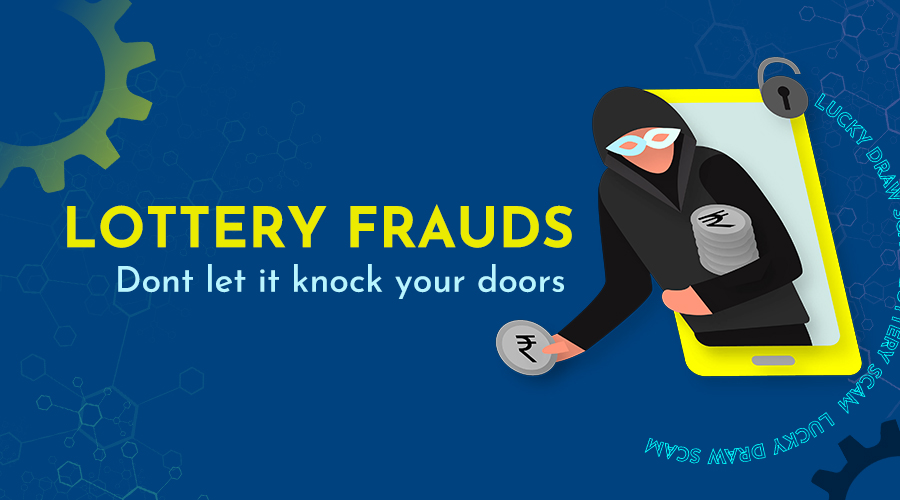A fair lottery requires significant measures to protect against fraud. This is the focus and mission statement of any overseeing lottery organization. It ensures a lottery is carried out with integrity and protects players’ investment in the game.
How lotteries prevent fraud has changed quite a bit over the years, as today’s lotteries rely on digital technology in a way that past lotteries did not. Here are some security measures and protections to ensure fair play.
1. Security Protocols for Tickets
Several security protocols are in place for lottery tickets. They involve ensuring the winning ticket information is clearly legible, including the lottery numbers. Also, they keep information private about the full extent of the protocols. Every lottery organization works differently, so they may use different measures to ensure fraud prevention.
2. Common Ticket Verification Procedures
Various procedures ensure the fairness of ticket redemption. Tickets are signed by the player before validation. Receipts are provided to the player following ticket validation. The retailer tears the barcode off winning tickets to prevent multiple redemptions. All prizes are paid out immediately upon redemption. There are dozens of protocols surrounding ticket redemption.
3. Lottery Retailers Are Under Strict Rules
In each jurisdiction, lottery retailers must follow stringent regulations, although the specifics differ. Retailers are prohibited from buying or cashing lottery tickets in their establishments. Furthermore, they are obligated to return your ticket, regardless of whether it’s winning or not. Retailers are monitored for all winnings of $1,000 or more, and any suspicious activities detected may lead to lottery license suspension.
4. Lottery Terminal Protections
It is possible to hack lottery terminals and alter lottery numbers. However, these terminals are constantly monitored. They become temporarily frozen when tickets are validated for $10,000 or more. A list of unclaimed instant prizes is sent daily to the retailer to post in customer view. All these terminals are also fed into an organization’s analytics program to verify their functionality.
5. ID Verification for Winners
The right prizes must be paid to the right people every time. Identity fraud has long been a prominent crime, so lottery organizations require verification IDs. They often request that major winners present at lottery headquarters to claim their prize and have their photo taken. Prize claim verification is advanced, confirming ownership and eligibility before dividends are paid out.
6. Automated Analytics Systems
Analytics systems can be automated to record and generate reports for every draw. A lottery organization records all lottery transactions, including transactions dating back decades before digital analytics integration. These systems can quickly identify and investigate questionable activity in real-time without human intervention. Suspicious transactions are flagged, and fraudsters can be identified.
7. Public Sharing of Information
Lotteries prioritize security, fraud prevention, and fair play. This is why lottery companies share public information about their lotto draws. They publish winner lists and issue news releases for large prizes to media outlets. Similarly, they release information about potential issues or attempted fraud. Transparency and integrity are at the helm of a fine-oiled lottery organization’s commitment to fair play.
8. Lottery Investigations Do Happen
Lottery organizations may launch investigations into suspected fraud cases, using terminal activity and data analytics as support. Claims are handled, and internal investigation units take action. Investigations can happen at any level, from the corporate side and suspected insider wins to examining individuals, third parties, or retailers. Every theft, fraud, and dishonesty claim is taken seriously. It is routed to the investigative team, logged into a database, and investigated.
9. Third-Party Investigations
While lottery organizations often conduct internal investigations, they usually have to answer to a third-party, such as a gaming commission. These commissions can also launch investigations and review suspicious prize claims and insider claims. They are there to verify further and support the lottery’s integrity. If the commission finds any wrongdoing, it can issue fines, revoke licenses, or even ban the lottery organization from operating in the region.
10. Player Advice
Lotto organizations advise customers on fraud protection. Customers are never asked for payment to claim a prize. Sending unsolicited emails or letters is not something lotto organizations do. Likewise, they never call customers to pay taxes or fees on their winnings.
While lottery organizations typically have a zero-tolerance policy for fraud, attempts can still be made against individuals. Most organizations try to limit this exposure and close fraud opportunities.

